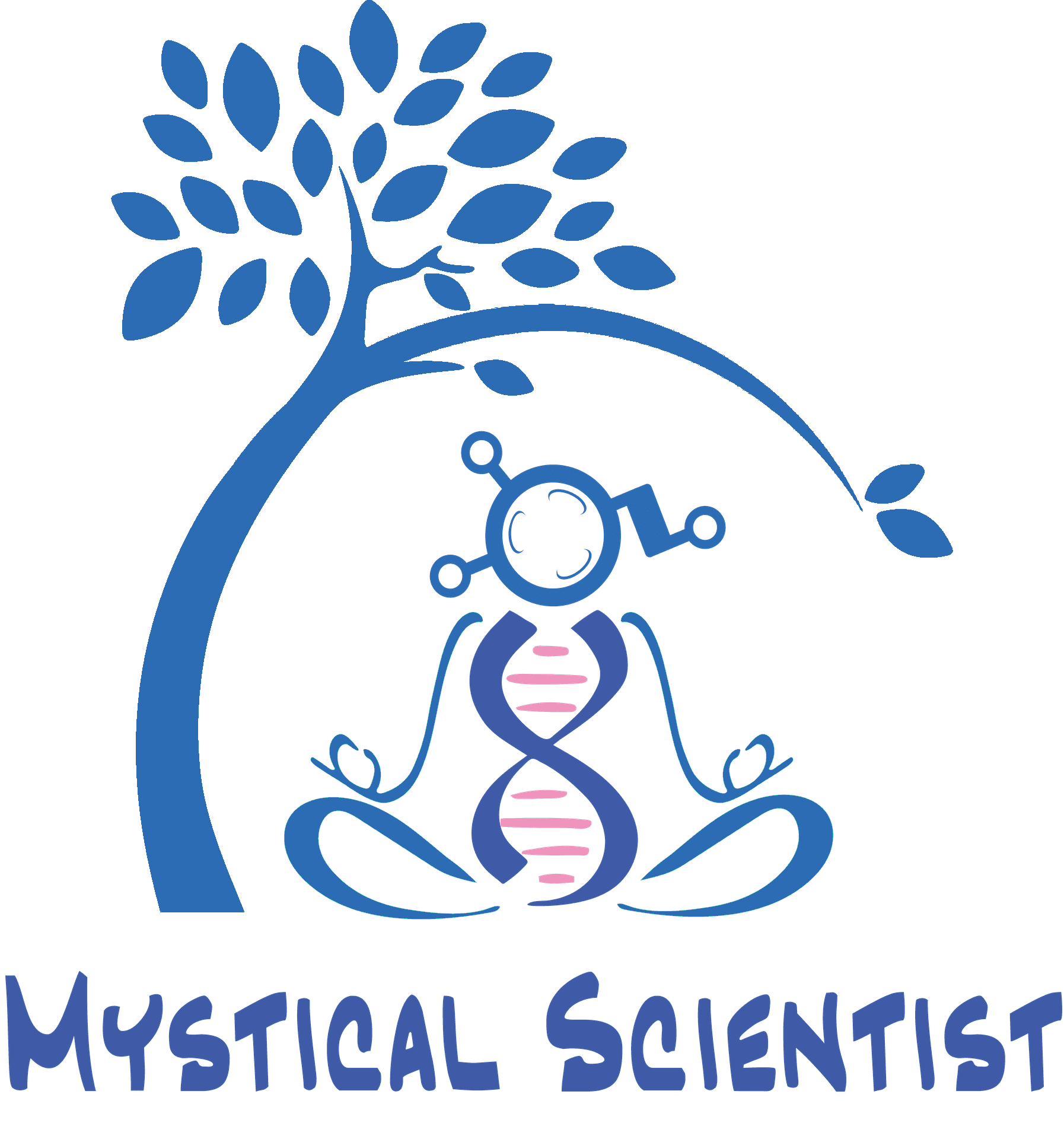Lately, this topic has surfaced so often for me that I feel compelled to join the conversation. One instance was a California state-organized seminar for job seekers I attended a couple of weeks ago. In the seminar, emotional intelligence, or emotional quotient (EQ) was highlighted as a key tool for networking, building connections, and fostering meaningful relationships, making it a highly beneficial attribute for securing jobs in an increasingly competitive market.
As someone who speaks about merging spiritual concepts with science, I find emotional intelligence to be a perfect topic where these two fields intersect.
One Concept, Different Audiences
In my previous role as a scientist, I conducted a training seminar for my colleagues on emotional intelligence. Interestingly, I based it on the same material I used for my talks at the local psychic fairs, originally titled “Power of the Mind: Harnessing Science and Spirituality for Personal Growth.”
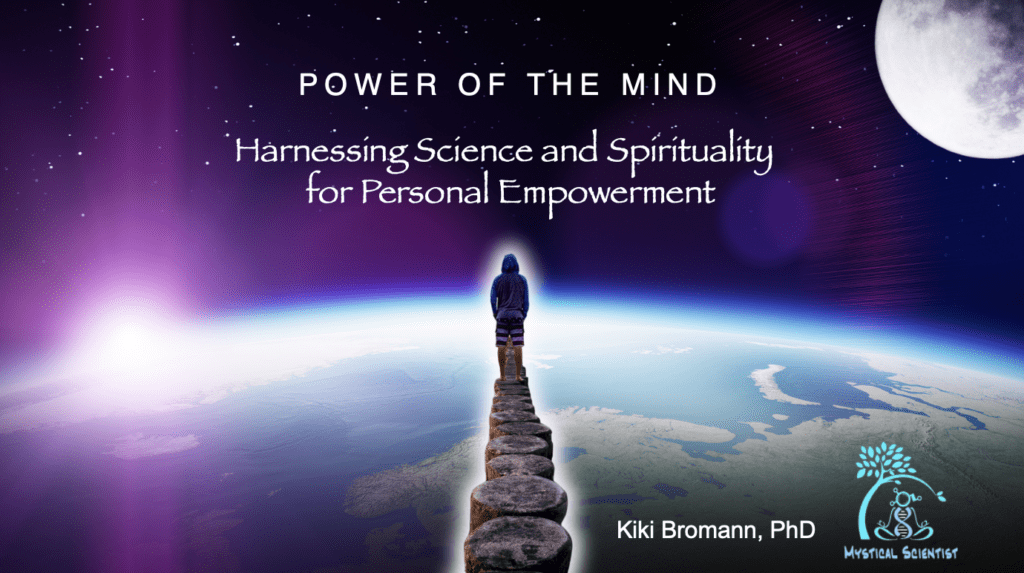
The main difference was in the language and framing: for scientists and the corporate audience, I adapted the terminology to align with their professional perspectives, discussing neuroscience, brain function, and psychology as tools to enhance teamwork, leadership, and productivity. At the psychic fair, however, my goal was to inspire attendees to pursue their dreams and create the life they desire, so I used terms like energy flow, law of attraction, and intuition.
In both settings, the core message remained the same: emotional intelligence and the power of the mind are not just abstract concepts; they can be harnessed to benefit for-profit companies as well as individuals striving for personal development.
Emotional Intelligence as Your Differentiator
Recently, at the San Diego TEDx event, I was impressed by a talk from Victoria Lakers, who emphasized human connection as one of the essential drivers of her success. The message I took from her talk was that connecting with people on a human level can lead to extraordinary results, adding a crucial element to technical expertise or in situations where professional skills alone may not be enough.
Victoria’s talk and the job seeker’s seminar were just a few instances reinforcing that even as personal connections are replaced by digital interactions and industries are reshaped by automation and artificial intelligence, the human element remains irreplaceable. The ability to connect authentically will stay the main differentiator in leadership, job hunting, and attracting opportunities.
Your Social Skills Are Based on Knowing Yourself
What makes me enthusiastic about this topic is the understanding that emotional intelligence is founded on self-awareness. The tagline for my coaching company, Mystical Scientist, LLC, is “Awareness Equals Empowerment,”reflecting my belief in the transformative power of self-exploration.
As humans, our cognitive responses are often overshadowed by heightened emotional reactions. By recognizing and understanding our unconscious drivers, patterns, and behavioral models that are shaped by our environment, upbringing, and experiences, we gain the ability to assess whether our behaviors serve us or need to change.
Self-regulation is the ability to manage these responses so they don’t hijack our cognitive functions or make us feel at the mercy of our triggers. By cultivating self-regulation, we create mental space for ourselves and others, fostering greater empathy and compassion. Empathy allows us to recognize that others, too, experience fear, stress, and frustration. Rather than taking their reactions personally or feeling the need to fix them, we can grant them space to be in their own experience.
This shift is profoundly liberating, beneficial for our nervous system, and allows us to navigate social situations with greater ease. Together, these four pillars form the structure of emotional intelligence:
- Self-awareness and self-regulation build our personal competence.
- Empathy and social skills create our social competence.
Ultimately, the result of emotional intelligence is mastering social skills, and at the root of social skills is your ability to truly know yourself.
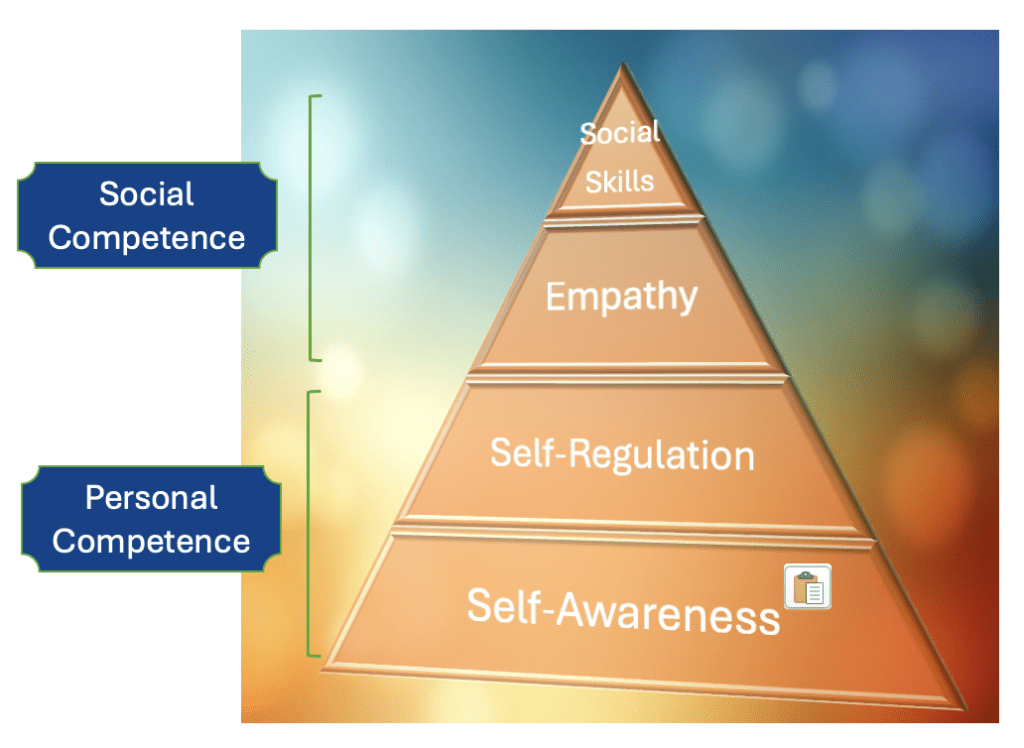
Unconventional Tools for Self-Awareness: A Valuable Addition to Traditional Methods
There are countless ways to begin building self-awareness and increasing emotional intelligence. Traditional approaches include journaling, therapy, counseling, and personality assessments like Myers-Briggs, Enneagram, or DISC tests. Additionally, more introspective and spiritual methods can be just as valuable.
In my own practice, I combine coaching with tarot, oracle cards, astrology, and human design to uncover subconscious patterns and gain insights into my own and my clients’ personalities. Awareness can manifest in unexpected ways. For example, through astrology, I discovered that while I am highly curious, intellectual, and communicative, one challenge of being a Triple Air sign is a tendency to be a bit “air-headed.”
This realization was a huge relief. My mother had suffered from Alzheimer’s disease, and whenever I misplaced my car keys or forgot my purse somewhere, I would immediately worry that I was developing the same dreaded condition. But understanding that my thoughts often run the show, and that occasional forgetfulness is simply part of my personality makeup, gave me a sense of self-compassion and alleviated much of the fear I had associated with being in my head.
Supporting this, my genetic sequencing showed no risk factors for Alzheimer’s. However, knowing that I am 100% Finnish, I also recognize that genetic markers from other studied populations may not apply in the same way to my ancestry. In this case, both astrology and science played a role in reducing my fear and giving me peace of mind.
Astrology as a Path to Compassion: Understanding Others Through Their Nature
Another powerful example of how unconventional methods like astrology can foster greater compassion is in understanding others. For me, learning about the idiosyncrasies in my parents’ astrological charts helped me develop compassion for their behavior. My mother was a Virgo, and my father a Taurus, both Earth signs who were hardworking, grounded, and practical.
Growing up, whenever my mom and I had an argument, she wouldn’t verbalize an apology but would instead offer me food. That was her way, as a grounded Earth person, of expressing love, forgiveness, and making amends. Me instead, a talkative Gemini, craved words and would wonder, Why can’t she just say, ‘I’m sorry’? And while I understood what she meant by saying, ‘I made you some breakfast,’ it still frustrated me. Now, I can look back and recognize that it wasn’t about me being unworthy of her words. She was showing love in the way that felt most natural to her, through nurturing and being of service.
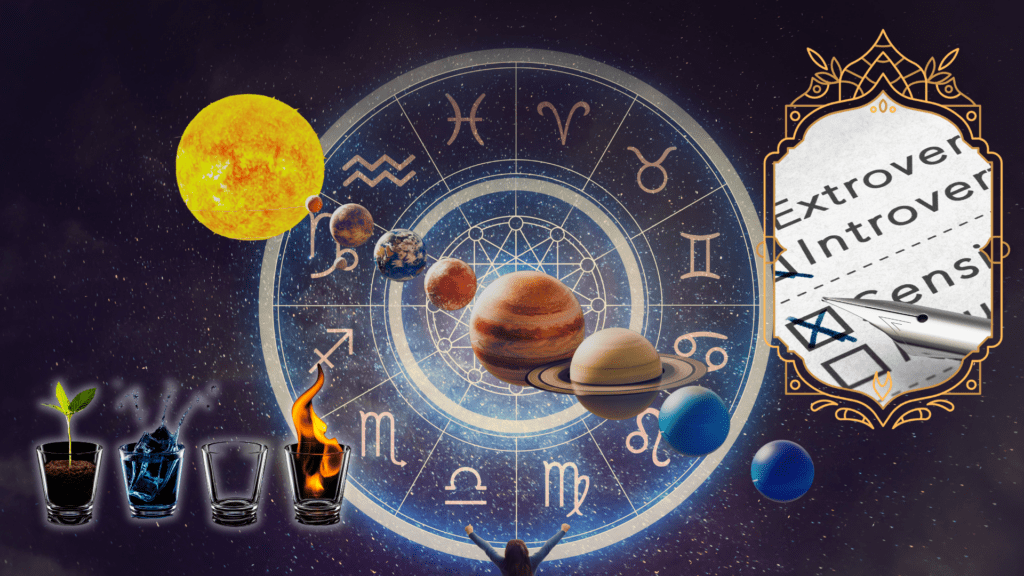
Skeptical About Woo-Woo? It’s About Curiosity, Not Belief
If you’re skeptical about these concepts, whether it’s life coaching, tarot, oracle cards, astrology, human design, or any other spiritual self-exploration tools, know that they don’t require belief, just curiosity. These intuitive methods, like any form of self-reflection, can offer valuable insights.
Understanding our own inclinations and those of others can help us release resentment when the world does not respond to us in the way we want. Any statement, whether from a conventional or unconventional source, that resonates deeply, positively or negatively, reveals something about us. The specific method used to cultivate self-awareness is less important than the willingness to explore oneself.
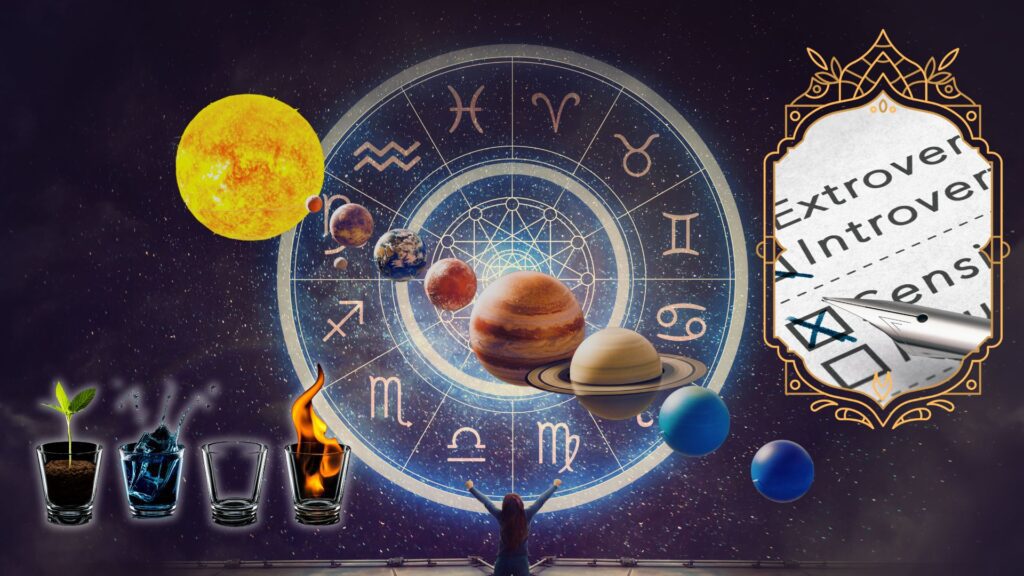
What if I already know myself?
Many people believe they already understand who they are, leading them to feel that self-exploration isn’t necessary. Joanna Lumley, the British actress known for Absolutely Fabulous, once remarked that there’s nothing interesting about studying yourself because you already know who you are, and self-reflection is quite boring.
I would challenge this perspective. For those who are naturally confident, reflecting on their inner world may not seem important. But most of us operate on autopilot, feeling as though life is simply happening to us, rarely questioning the why behind our experiences. This is where introspection can be a game-changer. It’s not just about self-awareness; it’s about developing tools to regulate your nervous system, reduce stress, and gain greater control over your thoughts, emotions, and reactions. This increases our emotional intelligence and social skills and ultimately shapes how we experience life!
The Future of Leadership
As we move forward, human connection and authenticity will be the currency of success. Whether in business or personal life, developing emotional intelligence allows us to thrive in an increasingly disconnected world. The work begins within. By cultivating self-awareness, regulating our emotions, and fostering deeper empathy, we create the foundation for meaningful and lasting connections.
As a scientist, I like to experiment, and I encourage you to do the same. Stay open, explore, and see what works for you. You may be happily surprised by what you discover!
Maybe curiosity can unlock an entirely new level of your leadership potential. Are you ready to explore?
